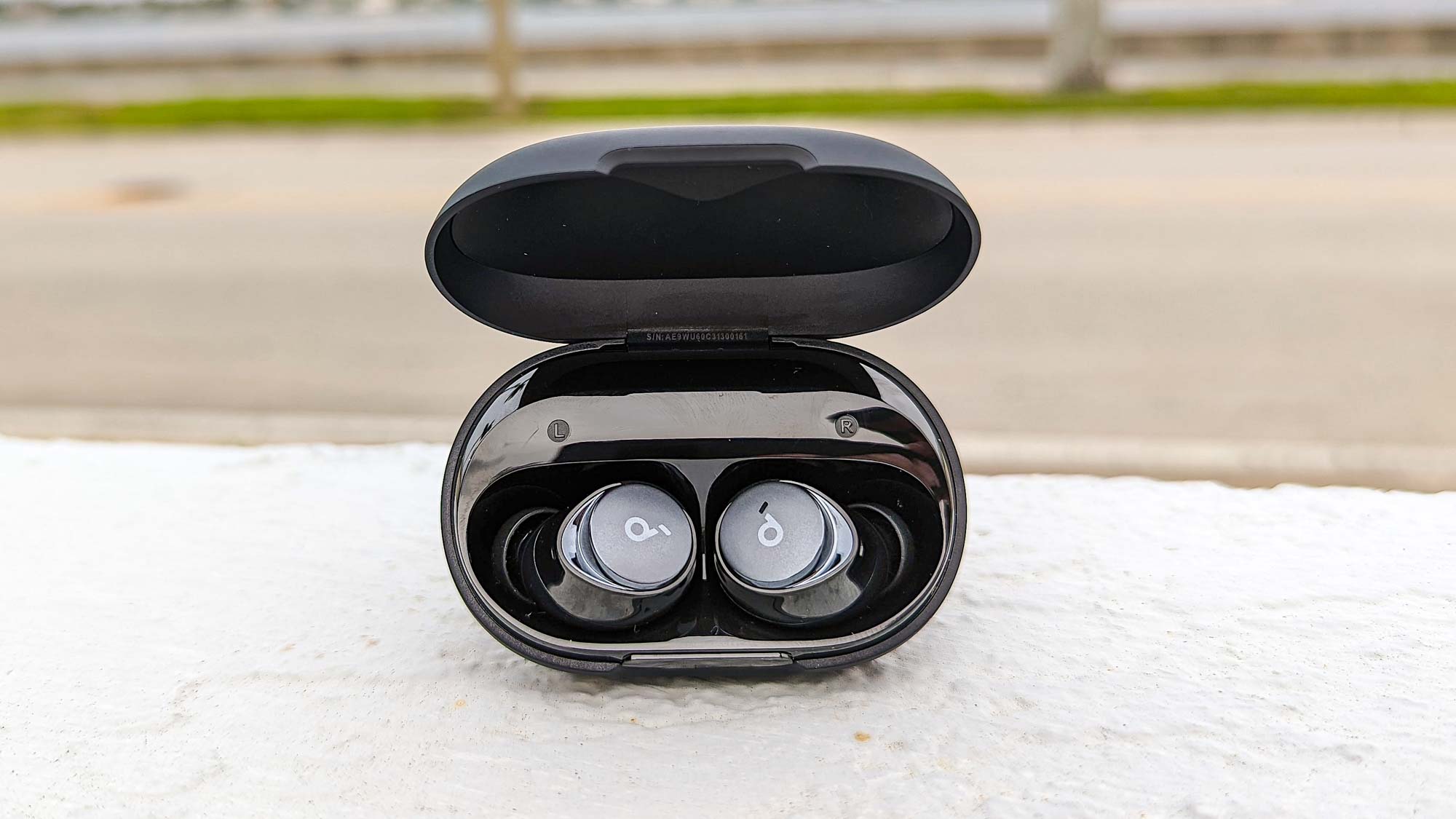
Price: $99 / £79 / AU$129
Colors: Black; navy blue; white
Battery life (rated): 5 hours (LDAC mode); 8 hours (ANC on); 10 hours (ANC off); 50 hours (charging case)
Connectivity: Bluetooth 5.2
Water resistance: Yes (IPX4 rated)
Size: 0.94 x 0.74 x 0.94 inches (per bud); 2 x 2 x 1 inches (charging case)
Weight: 0.17 ounces (per bud); 1.7 ounces (charging case)
The Anker Soundcore Space A40 is a unique offering that blends high-end features into an upscale design – at under $100. We’re talking active noise cancellation (ANC), Bluetooth 5.2 with LDAC support, customizable sound, multipoint technology, wind reduction, and much more.
There aren’t many models at this price point that can match the Space A40’s massive feature set. However, the buds’ long list of functional perks doesn’t exempt them from flaws such as disappointing ANC and wonky digital assistance.
Flaws aside, the Space A40 is a great value for budget-conscious consumers wanting a pleasant audio experience for cheap.
Anker Soundcore Space A40 review: Price and availability
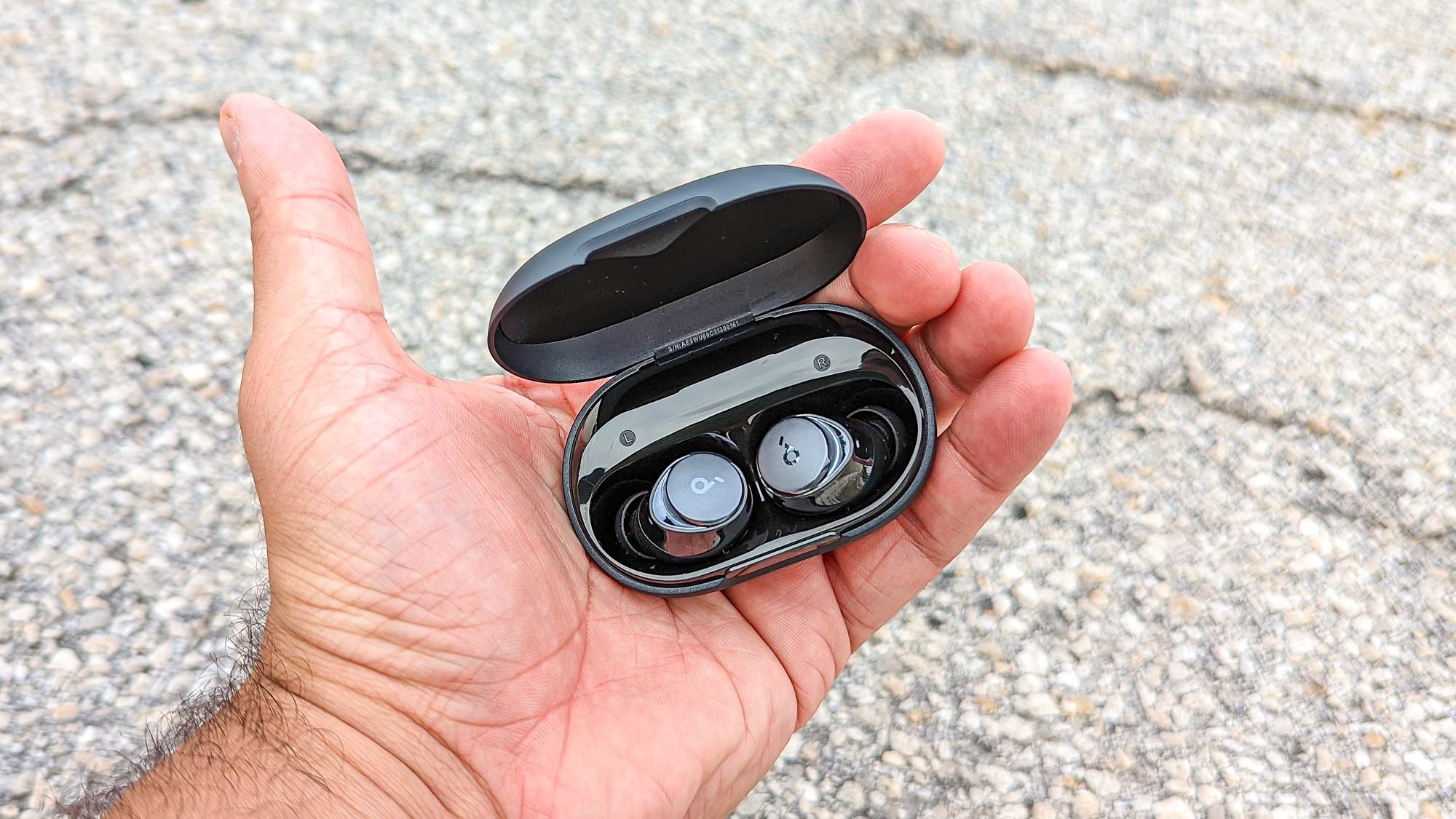
- Available in three colors
- Competitively priced
The Space A40 can be purchased for $99 / £79 / AU$129 at major online retailers, including Amazon and Target, or directly from Anker. Three colors are sold: Black, Navy Blue, and White. Inside the box are a wireless charging case, USB-C cable, five sets of different-sized ear tips, and a quick start guide.
There are many noise-cancelling earbuds sold for under $100, but the Space A40 is one of few to come with Hi-Res Audio support. These buds also come in at a lower price point than category leaders like the $249 AirPods Pro 2 and the $299 Sony WF-1000XM5.
Bookmark our headphone deals page to stay up on the latest sales.
Anker Soundcore Space A40 review: Design and comfort
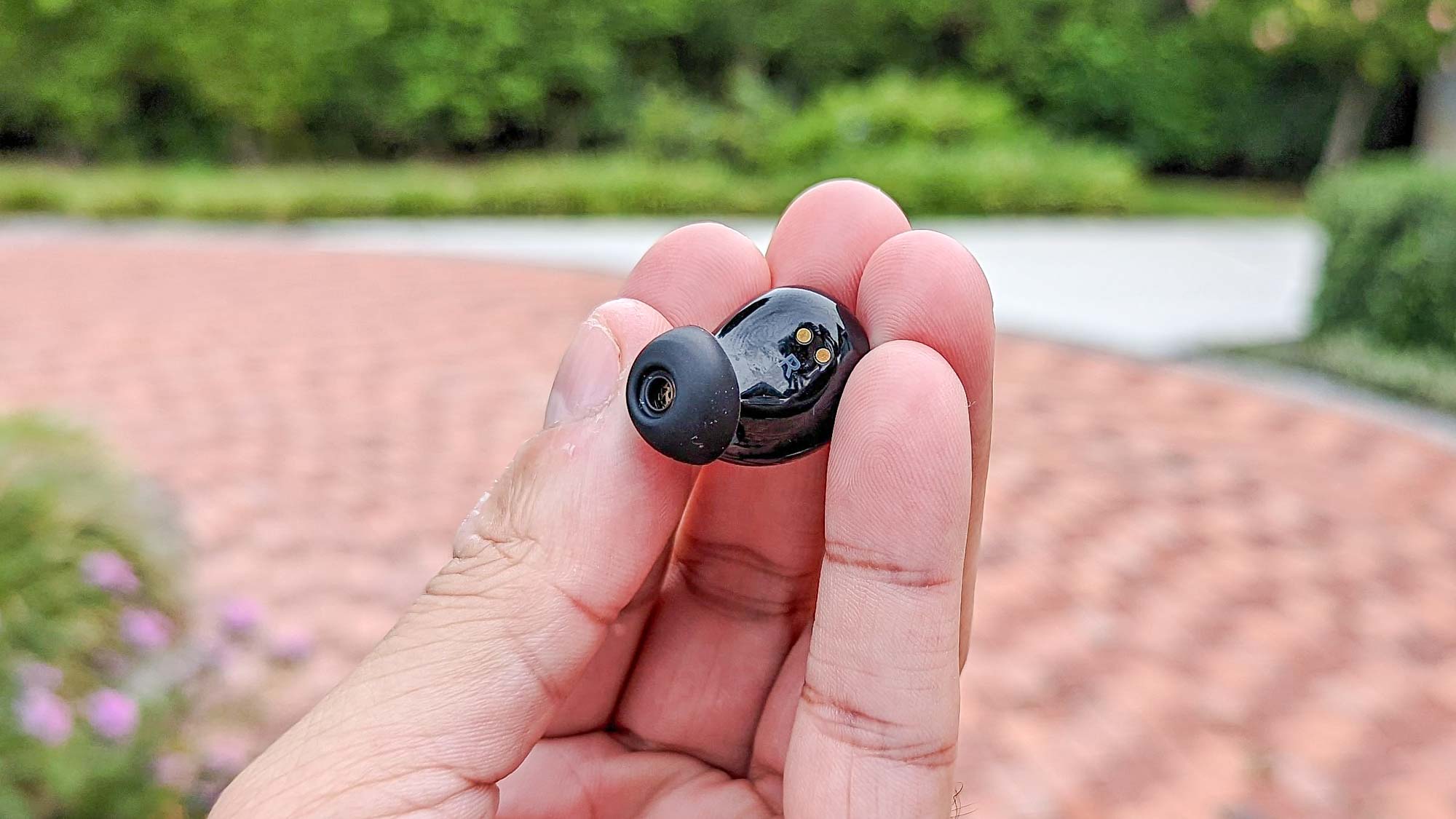
- Small, sleek, and stylish
- Compact charging case
- Very comfortable
Anker made the Space A40 25% smaller than the previous generation. Build quality wasn’t compromised, with solid plastic wrapping around the entire frame. Aluminum accents on the front give these buds a nice two-tone colorway. IPX4 certification protects them from excessive sweat and water splashing.
The charging case is arguably more attractive. I love the tiny, pill-shaped design that easily slides into any denim pocket, and the matte finish with debossed logo on top are nice touches. Oftentimes, cases this small are stripped of common features (e.g., LED, pairing button, USB-C port), but Anker managed to keep them onboard, even adding wireless charging to the equation.
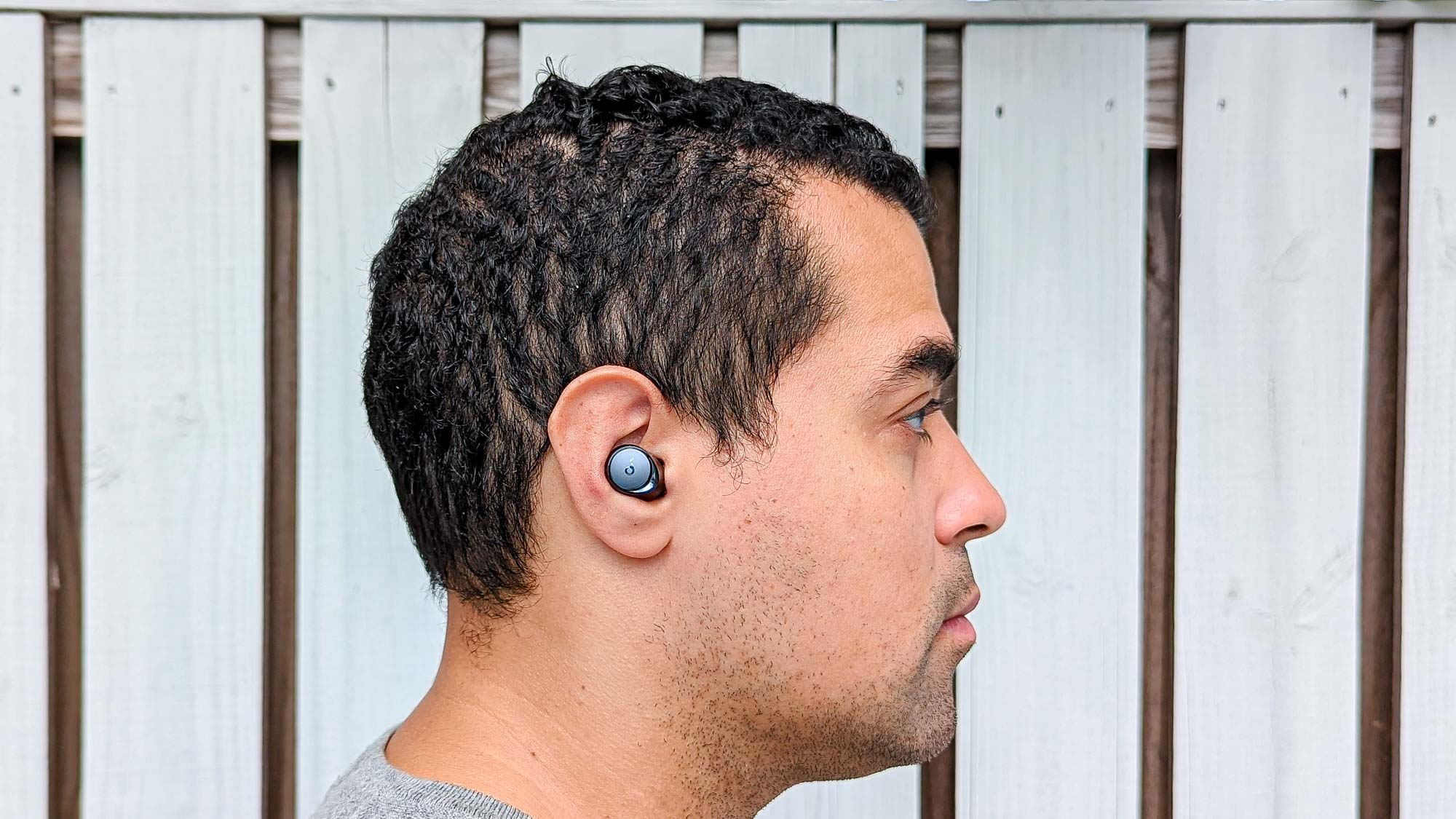
Comfort has been hit or miss on most Anker wireless earbuds, but the Space A40 gets it right. I used these buds for four-hour stretches before giving my ears a breather. Exceeding that time frame led to minor discomfort around the concha. The extra sets of tips accommodate listeners with different ear shapes and produce a tight seal around the canal for optimal fit.
Anker’s Fit Test somehow works better on the Space A40 than it does on the flagship Liberty 4. I performed two tests – one wearing both buds and another only wearing one bud – and the results were accurate. The software properly assessed suitable and poor fits, while recommending adjustments and providing visual suggestions.
Anker Soundcore Space A40 review: Controls and digital assistant
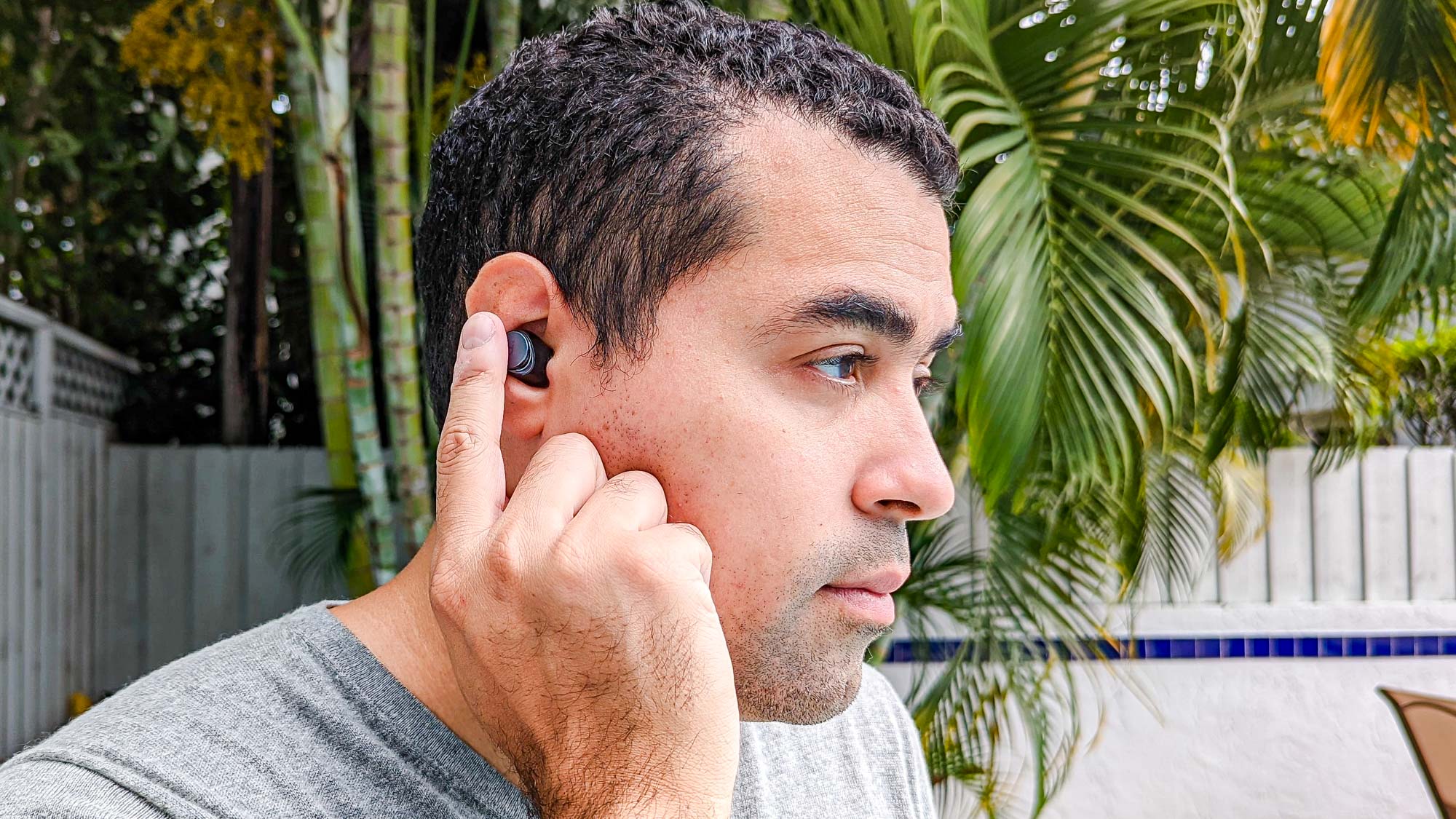
- Responsive touch controls
- No wear detection
- Digital assistant is unreliable
The Space A40’s touch panels are responsive to all input methods: single/double tap and long hold. It would have been nice to have a triple-tap gesture, especially since Anker lets you activate a wide number of functions directly on the buds. These include playback, call management, volume, digital assistance, Game Mode, and Ambient Sound.
Wear detection did not make the cut, so you can’t enable auto-pause when removing the buds from your ears.
Google Assistant and Siri are both compatible, but each performs poorly. There were times when Google’s AI bot misinterpreted commands or just froze. Siri on macOS was slightly worse, struggling to pick up words and suffering from serious lag.
Anker Soundcore Space A40 review: Sound quality
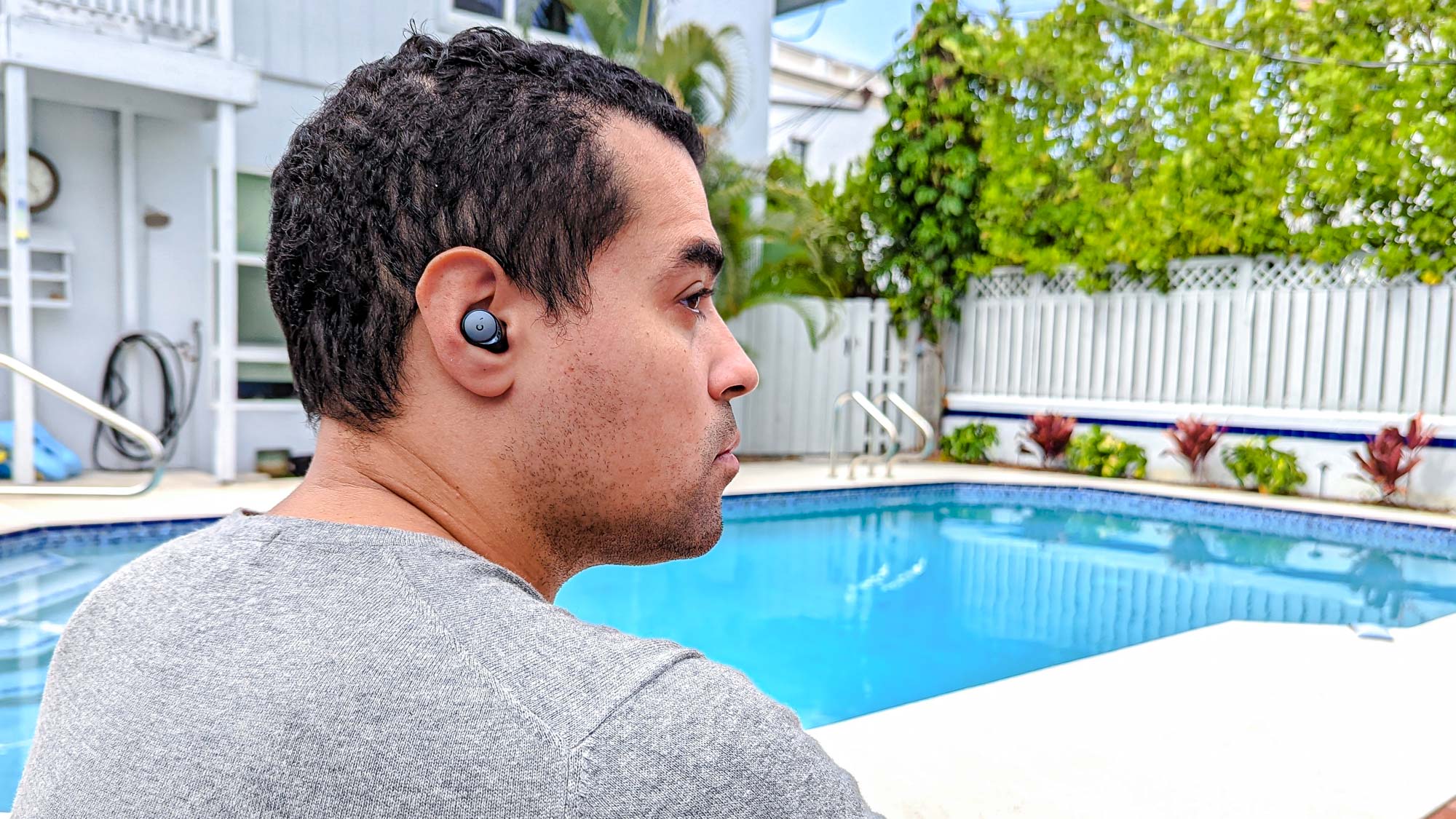
- Satisfying mids and highs
- LDAC codec support
- Several sound settings to play with
Powered by 10mm double-layer-diaphragm drivers and a variety of sound settings, the Space A40 delivers some of the best audio performance in its price class, even surpassing some sub-$150 models. There’s a lot to discuss, so let’s begin with Anker’s sound profile, which is driven by the Soundcore Signature EQ. It does the best job of balancing frequencies compared to the other 20+ EQs in the Soundcore app, though the bass can be exaggerated on certain tracks.
On acoustic classics like The Beatles’ “Yesterday,” the midrange was superb, bringing focus and prominence to Paul McCartney’s vocals. The crisp-sounding violins showcased the Space A40’s impressive high end. On the other hand, the guitar strings were aggressive and produced some fuzz. Switching to less bassy EQs like Classical and Piano reduced the effect greatly, but also weakened the low end. One way to stabilize frequency output is by adjusting the 8-band EQ to your liking.
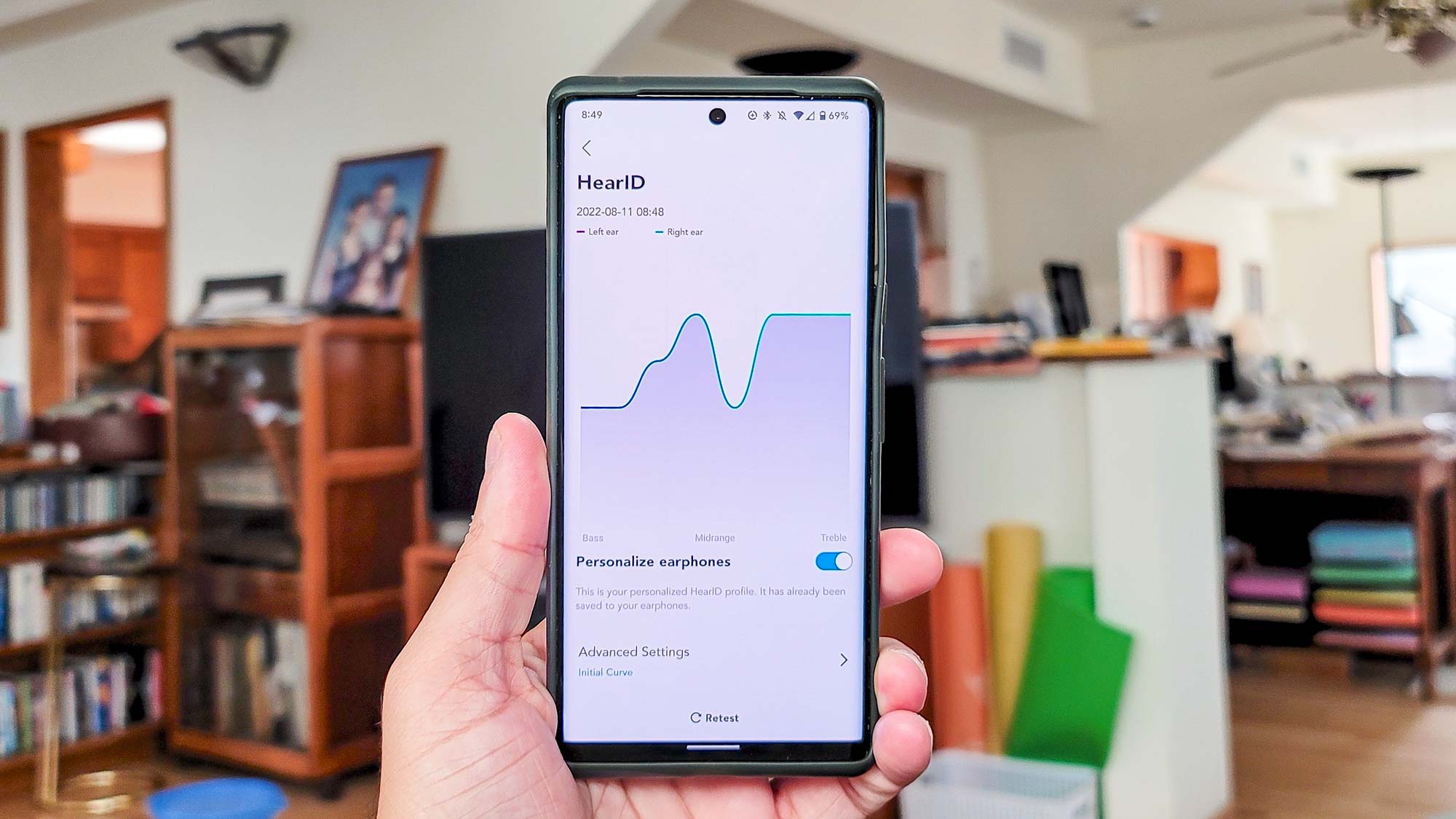
What I strongly recommend is using Anker’s HearID Sound feature to get the best sound out of these buds. The technology analyzes the way you hear music and creates a personalized sound profile tailored to your hearing. My profile fine-tuned lows, mids, and treble, allowing me to hear instruments across the frequency spectrum much more clearly.
The sonic improvements were most transparent on orchestral tracks. Treble was crisper and mids sounded sharper on jazz records liken John Coltrane’s “Blue Train.” I also appreciated how HearID gave the double bass and drums an impactful presence without coming on too strong, while allowing highs to shine; cymbals were tinny and blended well over horn-heavy arrangements.
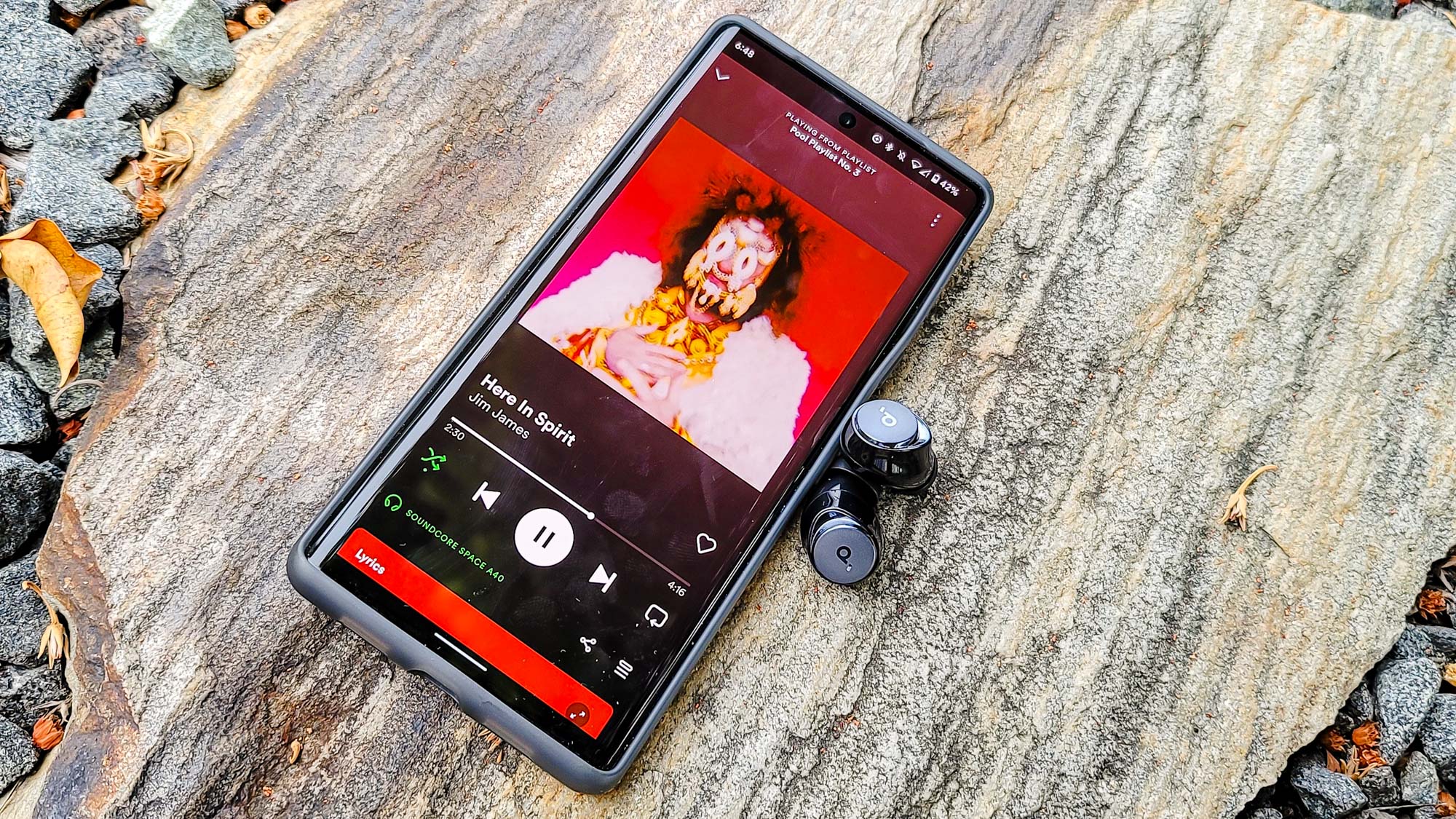
These buds support Sony’s LDAC format for higher-quality Bluetooth playback, which can deliver audio streams at up to 990kbps. You’ll need to turn it on in the Soundcore app and have a compatible Android phone, along with access to a hi-fi streaming service such as Qobuz, Tidal or Apple Music. This places them on the same level as more expensive models like the 1More Evo and Sony WF-1000XM5. AAC and SBC are also available and perform well.
Anker threw in a Game mode to appease mobile gamers, but there wasn’t much of a difference in audio synchronization or latency when in use.
Anker Soundcore Space A40 review: Active noise cancellation
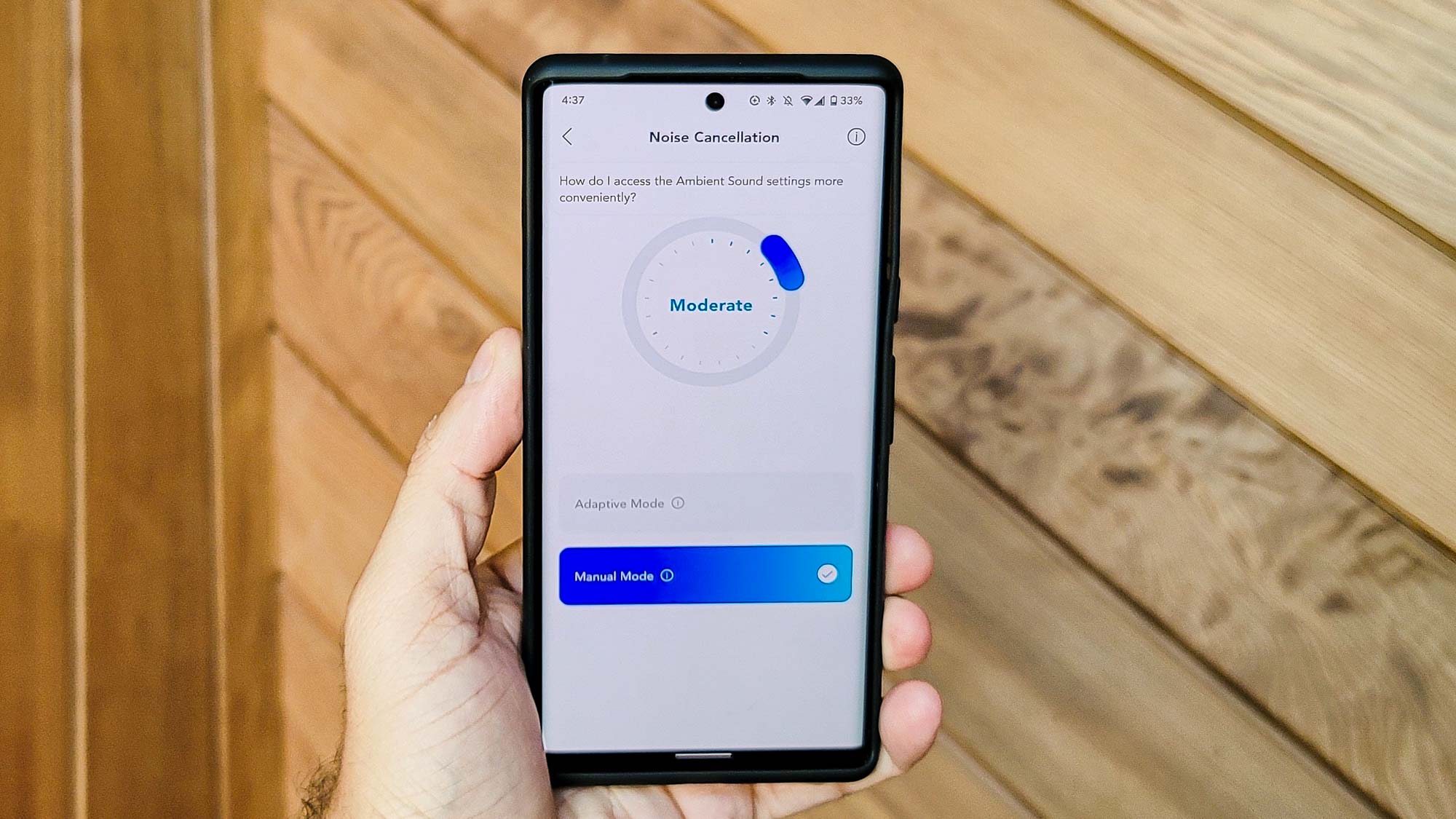
- Substandard ANC
- Effective ambient listening
Price is often an indication of ANC performance, and it shows on the Space A40. These buds can handle common disruptions like loud TVs, talkative pedestrians, and humming noises from a centralized AC unit. That’s about it.
Two modes are selectable: Adaptive and Manual. I preferred Manual since it offers the most customization. You can dial through three different settings – Weak, Moderate, and Strong – each one engineered differently. Strong produced the best results, granted it didn’t eliminate background noise as great as other sub-$100 competitors like the Nothing Ear (1). Anker’s ANC technology struggled to reduce high-end frequencies like sirens and my son’s cries, as well as buzzy sounds produced by landscaping tools; hedge trimmers sounded very loud. Moderate and Weak really served no use since they let in more noises than the Strong setting.
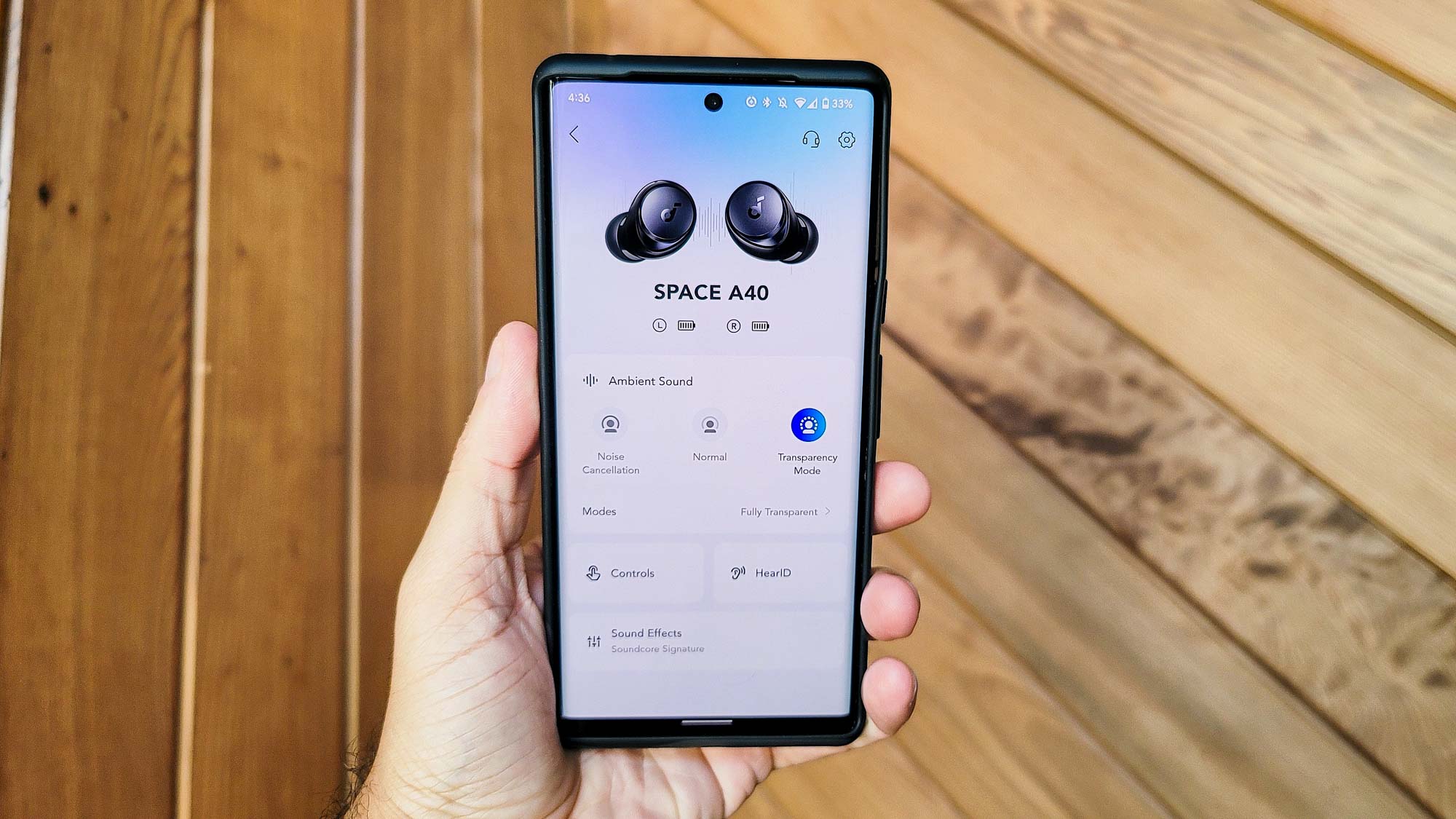
I was hoping Adaptive would have been more advanced and unlock the buds full ANC potential, but performance remained the same. All it did was scan the noise levels around me and enable one of the three settings based on the results.
The better performer was Transparency Mode, which also has two settings: Fully Transparent and Vocal. Both operate well for their intended purposes. Fully Transparent pulled in most ambient noise for increased awareness, while Vocal demonstrated terrific vocal capture to easily communicate with others.
Anker also created a Wind Noise Reduction mode. Keep in mind it can only be activated in either ANC or Transparency mode, and must be toggled on in the app. It decreases wind presence a little.
Anker Soundcore Space A40 review: Special features and app
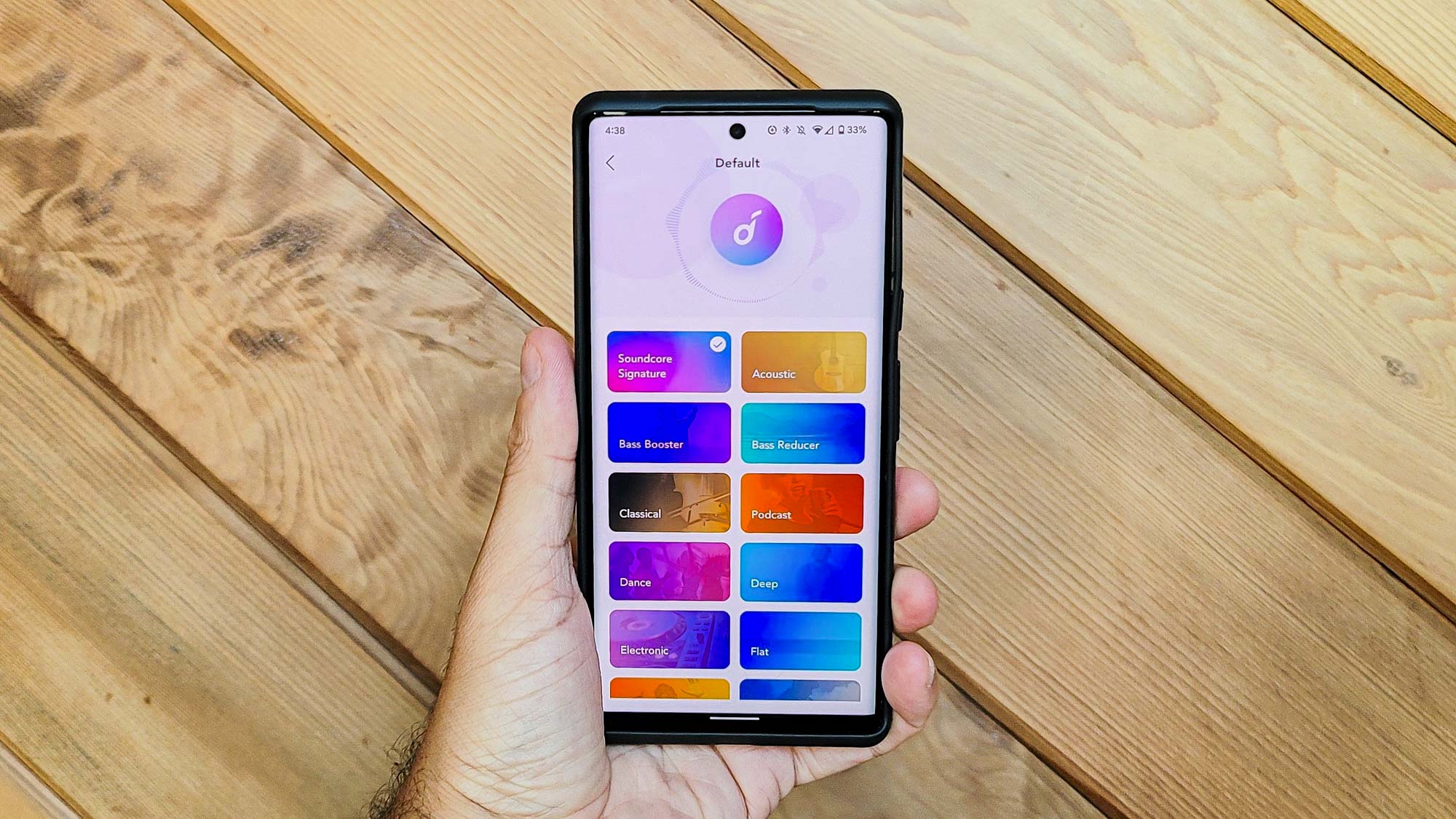
- Access to some Anker flagship features
- User-friendly interface
- Awesome soundscape mode
You’ll need to download the Soundcore app to access 90% of the Space A40’s features. The majority have already been discussed: Ambient Sound, HearID, Sound Effects, Game Mode, Fit Test, LDAC, Wind Noise Reduction, and control customization. Hit the settings icon on the top right of the homepage and you’ll discover a few more settings that enhance the user experience.
Sound Mode lets you prioritize sound quality, either based on lossless streaming or by balancing audio and connectivity. Device List opens the door for dual device connectivity (aka multipoint technology). Auto Power Off enables sleep mode when the buds are inactive after a certain time. Anker even gives you something that some luxury wireless buds don’t: a find my buds mode (Find Device).

There are other features sprinkled throughout the app. Select the profile settings icon on the bottom right of the My Devices page and you can change the backdrop from light to dark, which looks better and is easier on the eyes. The Soundcore icon in the middle sends you to the Discovery page where there’s a community section for conversations and insider testing, though you’ll likely come here for the White Noise feature. It’s essentially Anker’s version of soundscape and it allows users to create their own white noise profiles by selecting from a wide variety of different noises. You can do combinations of animals, nature, and other common ambient noises (e.g., keyboard typing), and adjust each one to make one sound more prominent than the others. It’s clever and useful. The sounds are true to their names as well.
There is one useful feature that’s accessible outside of the app. That would be the widget. It’s basically a shortcut for enabling the different ANC modes instead of manually activating them in the app or directly on the buds.
Rounding out the app are battery level indicators for each bud, firmware updates, and a visual quick start guide.
Anker Soundcore Space A40 review: Battery life and charging case
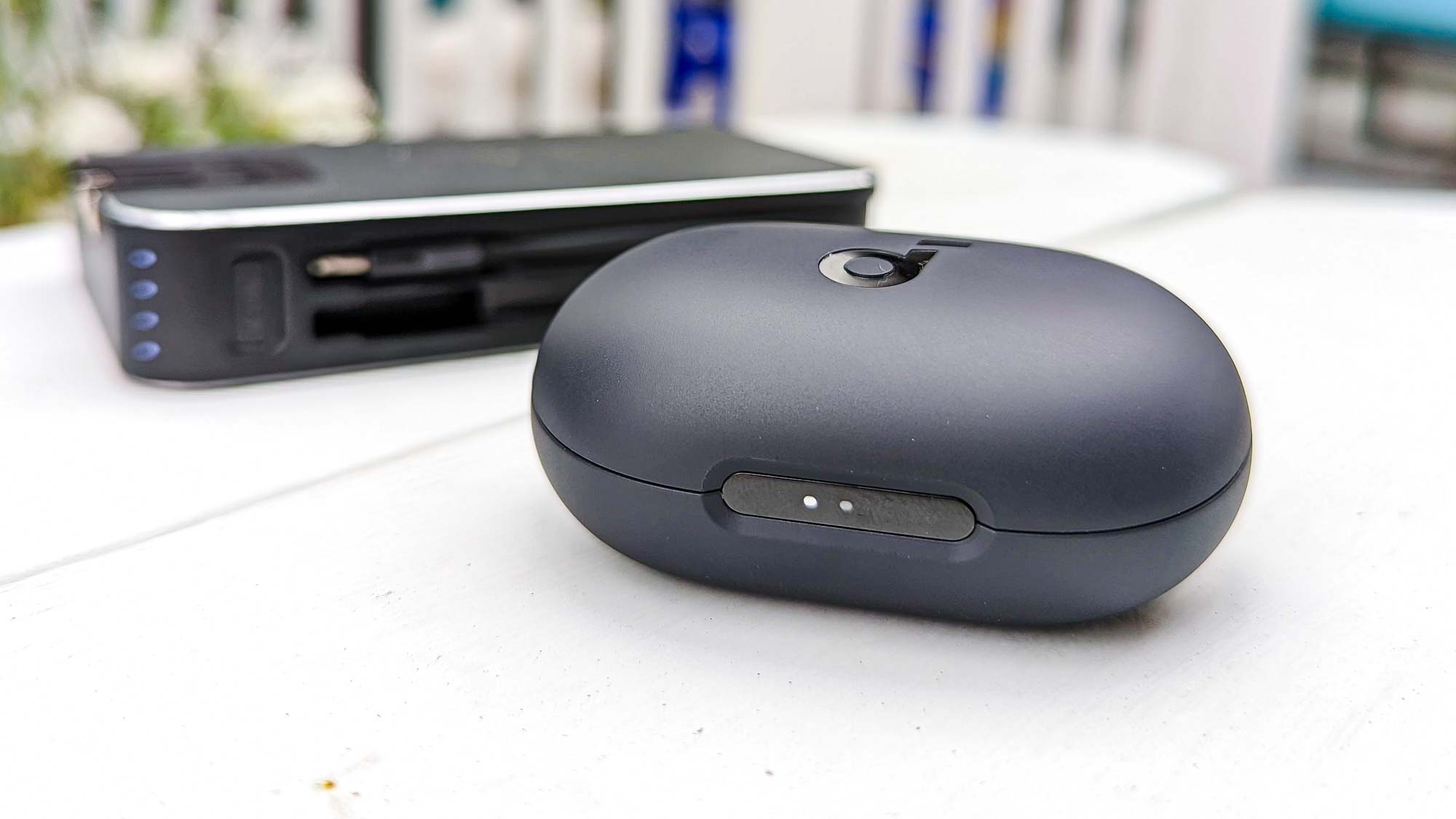
- Reasonable ANC playtime
- LDAC usage slices battery life in half
- One of the best charging cases available
Anker rates battery life at 8 hours with ANC on and 10 hours with ANC off. My testing showed these playtimes were about 1 hour off. Still, what you get is sufficient for four days of moderate use (2 hours daily). I’m not complaining since battery life is higher than the AirPods Pro 2 (5.5 – 7 hours). LDAC does bring listening time down to 5 hours, which is standard for most wireless earbuds with this feature.
The charging case is one of the category’s best, holding up to 50 hours when fully charged. That’s an additional five charges. A 10-minute charge gets you 4 hours of additional use. It also comes Qi-enabled for wireless charging.
Anker Soundcore Space A40 review: Call quality and connectivity
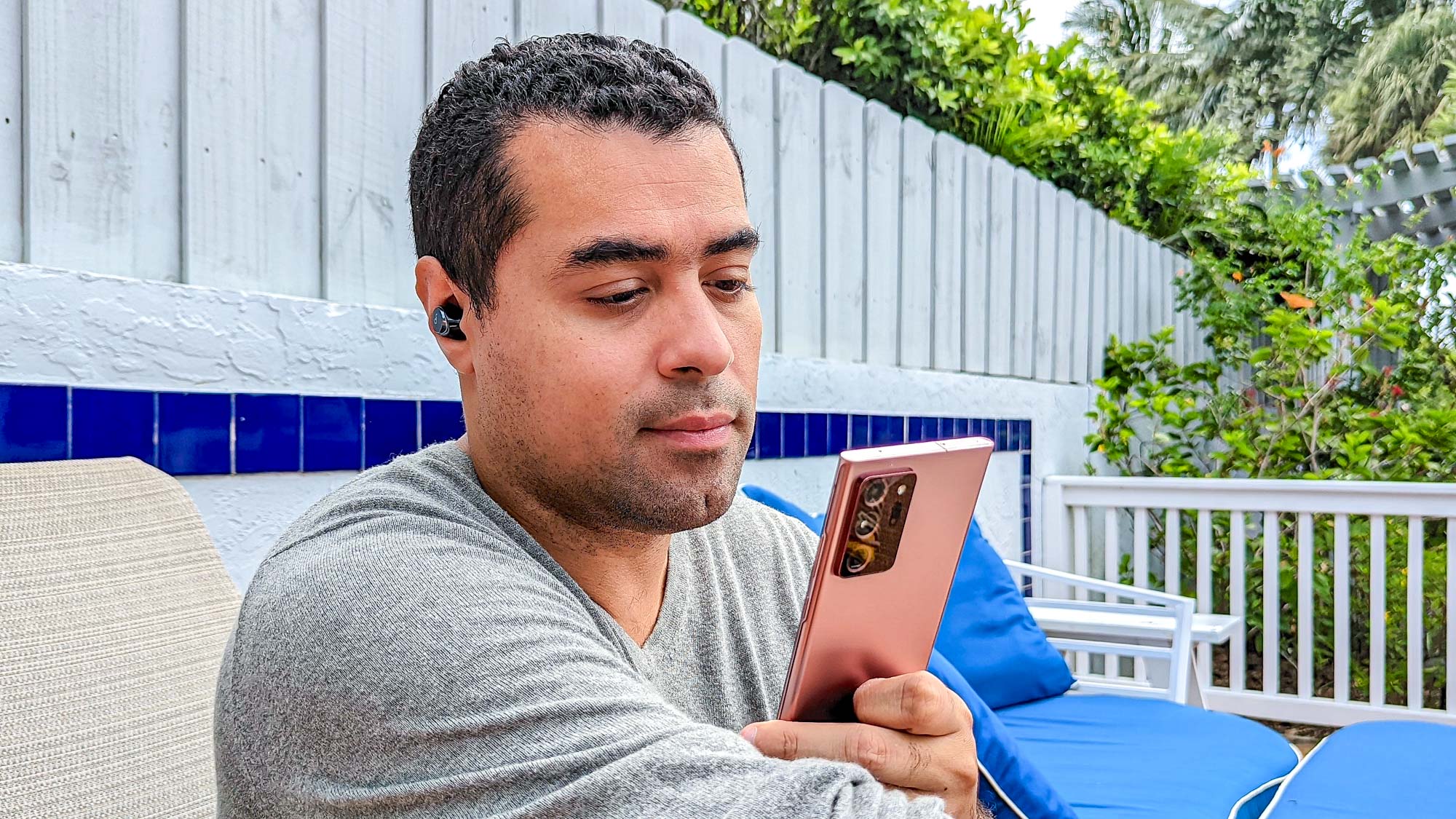
- Decent call quality
- Bluetooth 5.2 with multipoint technology
The Space A40 was serviceable for voice and video calls. Volume was high and voices came through clearly on both ends. Anker’s noise reduction algorithm doesn’t handle ambient noise as well as it should and there were many complaints about my voice sounding muffled when walking past loud backdrops.
Wireless connectivity is via Bluetooth 5.2, which operates smoothly on these buds. Range extends up to 55 feet in open spaces. The initial pairing process is quick with all devices, and despite lacking Google Fast Pair, the Space A40 will automatically detect and pair to your last used device.
Multiple technology is available to pair to two devices at the same time, which makes switching between a smartphone and laptop (or vice versa) a seamless task.
Anker Soundcore Space A40 review: Verdict
For $99, the Space A40 leaves enough of an impression to have you consider it over more premium options. These buds come with as many features as the AirPods Pro and any pair of Sony buds. Audio performance is noteworthy and can be customized in multiple ways. You’ll also receive strong connectivity and touch controls. Even with noise cancellation being a letdown, the Space A40’s pros are more substantial than its cons.







